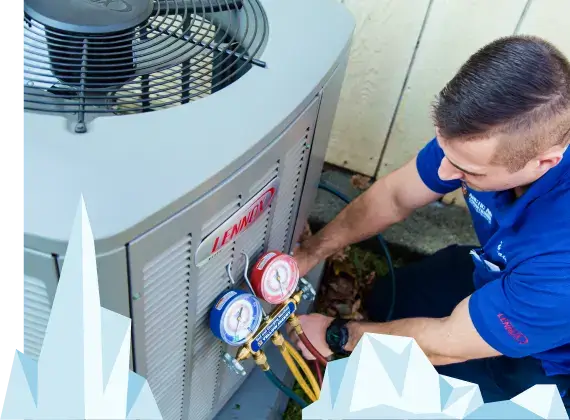Energy-Efficient HVAC Systems to Minimize Utility Costs
As power prices proceed to rise, the relevance of energy-efficient Cooling and heating systems becomes increasingly apparent. These systems not just promise significant cost savings on energy bills yet likewise add to an extra lasting future by lessening power consumption.
Benefits of Energy-Efficient A/c Systems
Energy-efficient cooling and heating systems provide countless advantages that expand past mere cost savings. One significant advantage is the minimized environmental influence. By eating less power, these systems add to lower greenhouse gas emissions, assisting to fight climate adjustment and promote sustainability. This straightens with increasing social needs for eco-friendly practices in domestic and industrial setups.
Furthermore, energy-efficient a/c systems usually give enhanced comfort levels. A number of these systems feature sophisticated technology that permits much better temperature level control and enhanced air top quality (DMAKS HVAC). This leads to a healthier interior atmosphere, which is especially important for people with allergic reactions or respiratory system problems
Furthermore, buying energy-efficient a/c systems can boost residential or commercial property worth. As more customers prioritize energy performance, homes and structures outfitted with these systems may draw in greater quotes in the property market.
Types of Energy-Efficient Heating And Cooling Options
Exactly how can house owners and organizations choose the most appropriate energy-efficient heating and cooling choices for their demands? The market offers a variety of energy-efficient HVAC systems, each designed to improve convenience while decreasing power usage.
One alternative is the variable cooling agent circulation (VRF) system, which effectively manages the temperature in numerous areas within a structure. This system adjusts its cooling agent circulation to match the desired temperature level, resulting in significant power savings.
One more popular option is geothermal warmth pumps, which use the earth's steady temperature to warm and amazing spaces. By transferring warmth to and from the ground, these systems show outstanding effectiveness, specifically in moderate environments.
Additionally, ductless mini-split systems offer an energy-efficient alternative for homes lacking ductwork. These systems permit zone-specific heating & cooling, minimizing power waste in unoccupied locations.
Last but not least, high-efficiency furnaces and a/c unit, with advanced SEER and AFUE scores, supply reputable environment control while eating less power than standard designs. By examining these choices, house owners and services can pick a cooling and heating system tailored to their certain requirements and power efficiency objectives.
Trick Functions to Consider

Next, examine the type of compressor utilized in the system. DMAKS HVAC. Variable-speed compressors can readjust their result to match the home heating or cooling demand, leading to improved convenience and energy cost savings compared to single-speed models. Additionally, search for systems geared up with smart thermostats that supply programmable setups and remote access, permitting far better control over energy consumption
Another essential function is the system's air filtration capacity. High-efficiency filters can enhance interior air top quality and minimize energy intake by making certain the system runs successfully. Additionally, take into consideration the sort of refrigerant utilized; contemporary systems frequently employ green cooling agents that have a lower ecological influence.
Last but not least, guarantee that the system works with zoning technology, which enables for customized temperature control in various areas of your home, boosting comfort while reducing energy use.
Tips for Choosing the Right System

Next, take into consideration power efficiency scores, specifically the Seasonal Energy Efficiency Proportion (SEER) for cooling down systems and the Annual Fuel Usage Performance (AFUE) for heater. Higher scores indicate greater efficiency, which can bring about considerable cost savings on energy bills with time.
Additionally, examine the kind of a/c system that best suits your lifestyle and spending plan. Options consist of central air, ductless mini-splits, and heatpump, each with its own collection of benefits and drawbacks.
Do not overlook the significance of appropriate installment and sizing; an inaccurately sized system can result in inefficiencies and boosted wear. Consult with a professional Heating and cooling specialist to obtain skilled recommendations tailored to your home's one-of-a-kind needs. This extensive method will certainly ensure that you select an energy-efficient cooling and heating system that fulfills your demands and budget plan properly.
Upkeep for Ideal Performance
Once the ideal HVAC system is in area, ongoing upkeep comes to be crucial to guaranteeing ideal efficiency and longevity. A well-kept system operates much more successfully, leading to lower power consumption and minimized utility expenses. Regular examinations and tune-ups must be scheduled at pop over to this web-site the very least two times a year-- as soon as before the air conditioning season and when before the heating period.

Homeowners ought to likewise be vigilant about checking their heating and cooling system's performance. Unusual sounds, changing temperature levels, or boosted power costs can indicate underlying issues that require instant interest. By addressing these issues immediately, property owners can prevent costly fixings and expand the life-span of their systems.
Buying an upkeep plan with a qualified service technician not only boosts performance however additionally supplies comfort, recognizing that the system is running at its ideal. DMAKS HVAC. Routine maintenance is for that reason necessary for sustaining power effectiveness and reducing overall functional expenses
Verdict
To conclude, energy-efficient a/c systems offer a feasible service for minimizing utility expenses while boosting comfort and air top quality. By integrating sophisticated technologies and alternatives such as geothermal heat pumps and ductless mini-splits, homeowner can achieve considerable power cost savings and add to environmental sustainability. Cautious consideration Visit Website of system functions and recurring maintenance additionally makes sure ideal performance, making energy-efficient systems a prudent financial investment for both financial and environmental advantages.